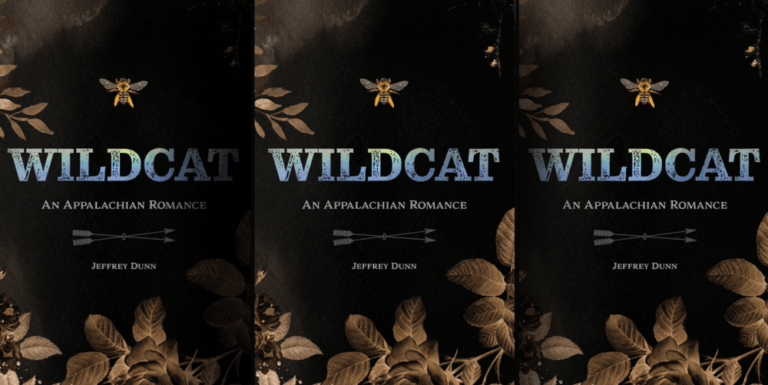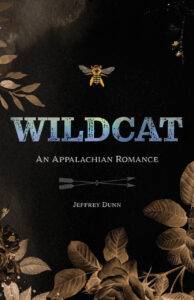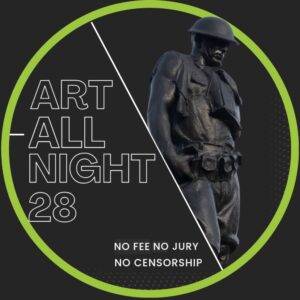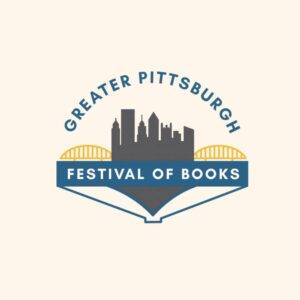From the Publisher, Izzard Ink: Lost love. Industrial catastrophe. Can it all be redeemed?
A retired English teacher returns to his Appalachian roots, lured back to the once-shuttered Hotel Wildcat, now revitalized as a collective endeavor. As he ventures through this transformed community, a new world unfolds before his eyes. The former mine, once a symbol of tragedy, now thrives as a flourishing mushroom farm. The dairy emerges as a purveyor of wholesome organic milk products, while the mill stands as a vibrant hub for sustainable and artisanal creations.
Yet amidst this promising rebirth, Wildcat’s ominous history remains inescapable—the haunting era of closures and explosions. Against this backdrop, our protagonist’s own dark past resurfaces, entwined with memories of his working-class girlfriend, an indomitable spirit adorned in the trappings of a resilient hippie chic. As he embarks on the ambitious endeavor of penning his memoir, his well-tempered turkey feather testifies to the redemptive potential of rediscovered friendship, the restorative power of nature, and our magical capacity for transformation.
More info About the Author: Nurtured in the Alle-Kiski Valley, Jeffrey Dunn taught English at Central Catholic and Seton LaSalle High Schools, urban homesteaded in Bloomfield across from Nico’s Recovery Room, was a deacon and elder at Shadyside’s Third Presbyterian Church, and earned a Ph.D. in English Literature and Cultural Studies at the University of Pittsburgh. He skipped town in 1993 to raise a family in the wilds of the Great Northwest, and after retiring after 41-years of award-winning teaching, he has returned to his Western Pennsylvania roots with two critically acclaimed novels, Radio Free Olympia, and most important to us, Wildcat: An Appalachian Romance, a fictional memoir that wonders if our Appalachian Rust Belt can be redeemed. As featured on NPR and Medium, this dream fisher and history miner writes cultural fiction and criticism and embraces his dyslexia as a gift.
Author Bio Don’t miss out: The Pittsburgh launch for Wildcat: An Appalachian Romance will be at White Whale on Friday, August 2nd and will feature readings by Jeffrey Dunn, Don Wentworth, Joan Bauer, and Kristofer Collins!
Event Info
I’ve come back to Wildcat. I say “back” because I’ve lived here before, the first time for only a year. It was my senior year of high school. My father managed small manufacturing firms, and as this was the time of America’s great industrial failure, we moved quite a bit, hopping from one ill-fated factory town to another. I’m not proud to say my father closed a lot of mills and sent a lot of men home. And now I’ve retired to Wildcat.
Wildcat is not a place people retire to. Most old people in the Rust Belt of Appalachia were born here and then never left. Interlopers are rare, even ones like me who lived here for a short time. I feel like a bloomed-out iris in a patch of Wildcat mayapples. And despite all that, I’m back.
Despite the catastrophic changes that rocked Wildcat my senior year.
Despite the mine explosion.
Despite the funeral for the miners who were killed, one of them my friend Dominic’s brother.
Despite the closing of the mill (and, yes, my father had a hand in that).
Despite the fire at the mill and then the unthinkable thing that happened after the fire was put out.
Despite the way I left, ending the relationship with my first love Carolyn, the girl with whom I explored the hill and the river and the creek, not to mention our art, our feelings and our bodies, the girl who kept me honest and the girl I left behind.
Yes, despite all that I’ve returned because my old friend Dominic said I should come back. He told me about Wildcat’s magical changes, ones so different from the disastrous ones of the past. He said I needed to see for myself, like how he had started a mushroom farm in the mine where his brother was killed.
Like how the mill that my father closed was now a workshop for artisans, a place where paper was being made from mushrooms, furniture and household utensils from sassafras, and honey and candles from beehives.
Like how the once failed Hotel Wildcat was now a thriving collective living and dining space. Dominic said that there was a room for me in Hotel Wildcat, and I have to say, the picture he painted of Wildcat was exactly the sort of place where a writer, dreamer, loner like me could be happy.
Like how Carolyn had recently returned to Wildcat after all these years. Dominic also said that I had unfinished business with Carolyn. To be honest, I wasn’t sure what he meant. I mean, Carolyn and I felt finished fifty years ago, but since this was Dominic, it was something I couldn’t ignore.
Introductions
Looking back over what I’ve written, I see an introduction. Maybe it’s an introduction to unfinished business, an account of what’s in store for Carolyn and me. It could be the story of two people reconciling after many years. Or possibly Faulkner was right all along, that digging for treasure only leads to an empty hole.
But it also might be an introduction to one Appalachian town’s renewal. Dominic not only told me about Carolyn but also about the changes that have come to Wildcat, and if I’m to write an account of those changes, the place to start is with Hotel Wildcat, my new home.
Hotel Wildcat is two stories tall with a pitched attic roof. It has hemlock clapboards and chestnut bones. There is a lobby door cut on the diagonal and a tavern door facing In Street. A long time ago, someone looked at the coal seam that ran along the hill and dug the mine, constructed the mill to smelt iron, put in the railroad, and built the dam. Soon to follow were houses, the school, and the church, and soon after that, the hotel, the place for those with little means and simple ways to gather, get drunk, and be on display. Someone named it Hotel Wildcat.
My second-floor room in Hotel Wildcat has three windows. Two front windows bring in the morning light from the river. A third side window frames Wildcat. It’s the picture I like best.
If I go to the front windows, I can see the river. Today, the river’s water is gray, and the clouds are threatening like an old tombstone with the word “INFANT” carved on its weathered face.
I sleep on a worn chaise longue. It was new once, and then someone didn’t want it anymore, it went out with the trash, so a few days back I carried it home and had the bed removed. I’ve never cared much for things, especially new things. Some have said I was born against the grain of the American Dream. I recall my mother using words to that effect. My father never said such things. I don’t think he felt the need.
I sit on a chair covered with faux leather made from mushrooms and write on a table topped with sassafras. Both are constructed from unique materials, and they were made here in Wildcat. It’s interesting how Wildcat is using local materials and sustainable methods to turn “making do” into “making a living.”
I light my room with beeswax candles made by Floreandra the beekeeper. When I sit in their light, I hear a gentle buzzing, a symphony of bees. I’m not interested in the buzz of coal fires. That is something I prefer not to hear. Around here the sound of coal fires sounds like families at funerals and children with empty bellies.
If I leave my room, I can go across In Street and onto Wildcat Beach. There are some big chunks of concrete on top of many small rocks. I like to stop at the river and watch the ripples lap against the pebbles, continually pulling them downstream like the wind in my dreams.
Since I’ve been back, I’ve wondered where the sand on Wildcat Beach has gone. I’ve wondered if it has something to do with the chunks of concrete scattered here and downstream, a result of the time someone blew a hole in the dam.
Change is such an iffy affair. Sometimes it gets out of hand, and we go to places we regret. There’s no guarantee.
This excerpt is published here courtesy of the author and should not be reprinted without permission.


























